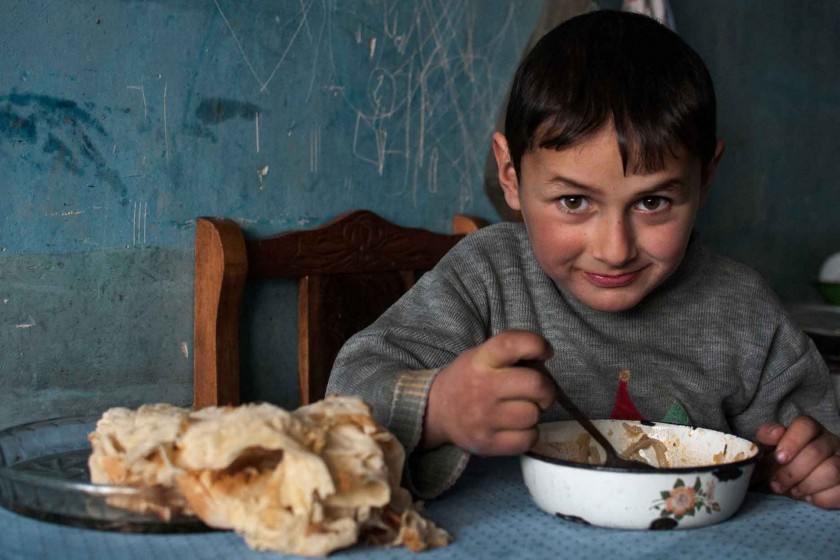
Norvart and Her 3 Boys: “We snatch days from God and live here”
Marine Martirosyan
Narek Aleksanyan
We approach the semi-dilapidated dormitory in the Armavir Province village of Lernagog.
The building looks like it was bombed a few days ago. Some of the walls have collapsed and the roof ominously sways. A huge crack traverses what’s left of the building. The only evidence that people actually live here is the laundry hung out to dry on the second floor balcony.
Just one family lives on the second floor. The other rooms lack doors and windows. The building is full of trash and dirt.
“Are you surprised that anyone lives her?” asks Norvart, a mother of three, casting a cold glance our way. I don’t answer. The woman voice takes on an even ruder tone. She invites us in. There are two young neighbors with us. Even their presence does nothing to suppress the woman’s mocking words and her pent-up anger.
Norvart has just returned from the post office to pay the electricity bill. Norvart’s mother gave her the money. She was still 2,000 AMD short. Norvart escorts us to the sitting room, or, as she says, what passes for one.
The family has lived in the dorm for the past two years. Previously, the family lived rent free in a private house in the village. The landlord later sold it and the family was put out. They went to the village mayor, asking that he at least allocate them one room in the dormitory. “It’s better than living on the street,” says Norvart. “That is if you call this living,” she adds.
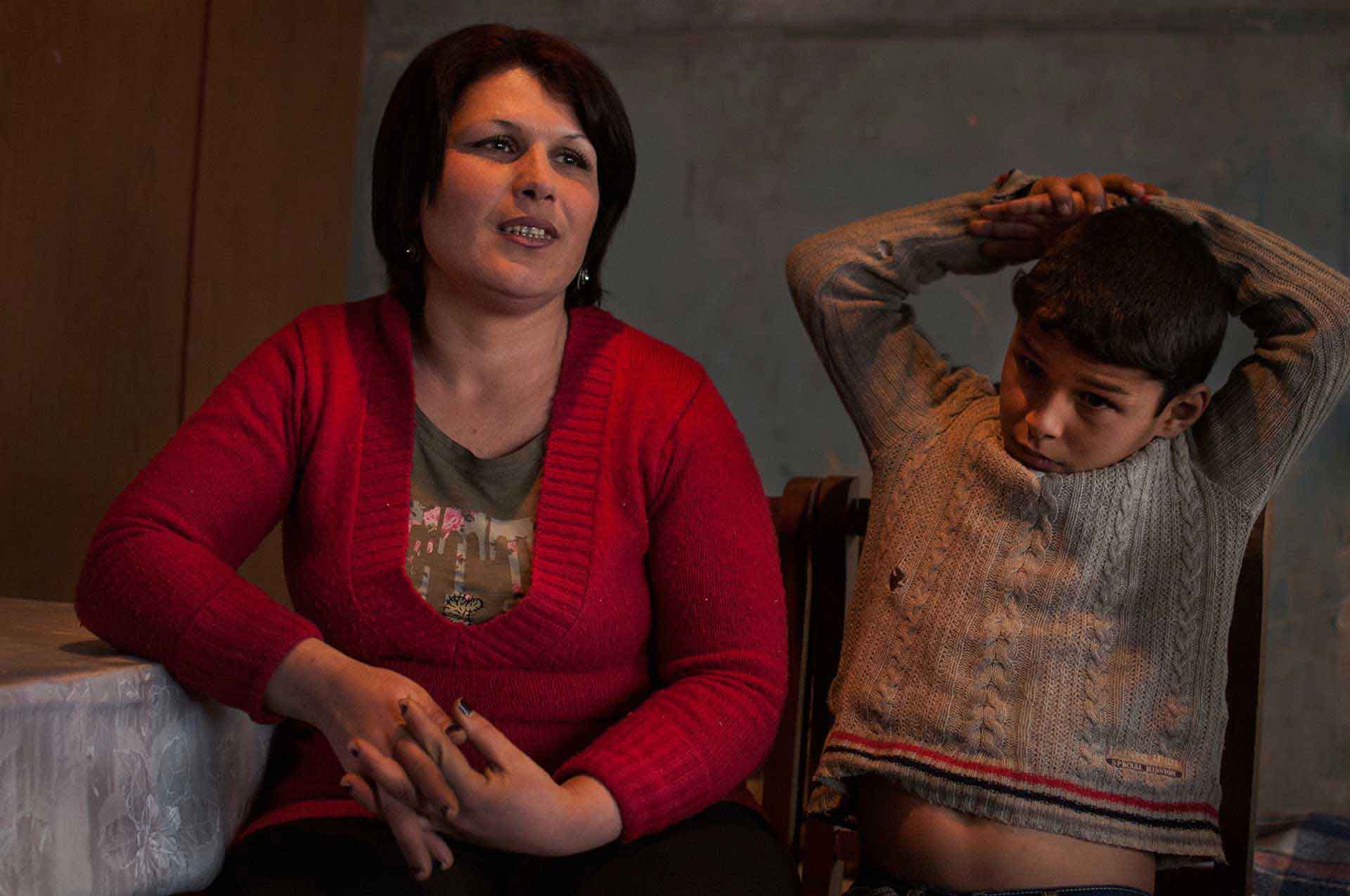
We’ve been conversing for ten minutes or so. I try not to ask too many questions. Norvart responds in curt fashion. Her gaze never leaves my face. She’s placed six green teacups side by side in the dinner service cabinet. There’s nothing else in the cabinet. The room doesn’t get much light from outside since the windows are covered in plastic and have a layer of black grime from the stove.
Six year-old Erik stands near the entrance to the room, holding an enamel pot. He’s looking at us. The enamel has long since worn away. Erik’s brother, eight year-old Argisht, breaks off large chunks of lavash while watching TV. Ten year-old Tigran, the other brother, sits on the bed. Hands cupping his chin, he listens to what his mom is saying.
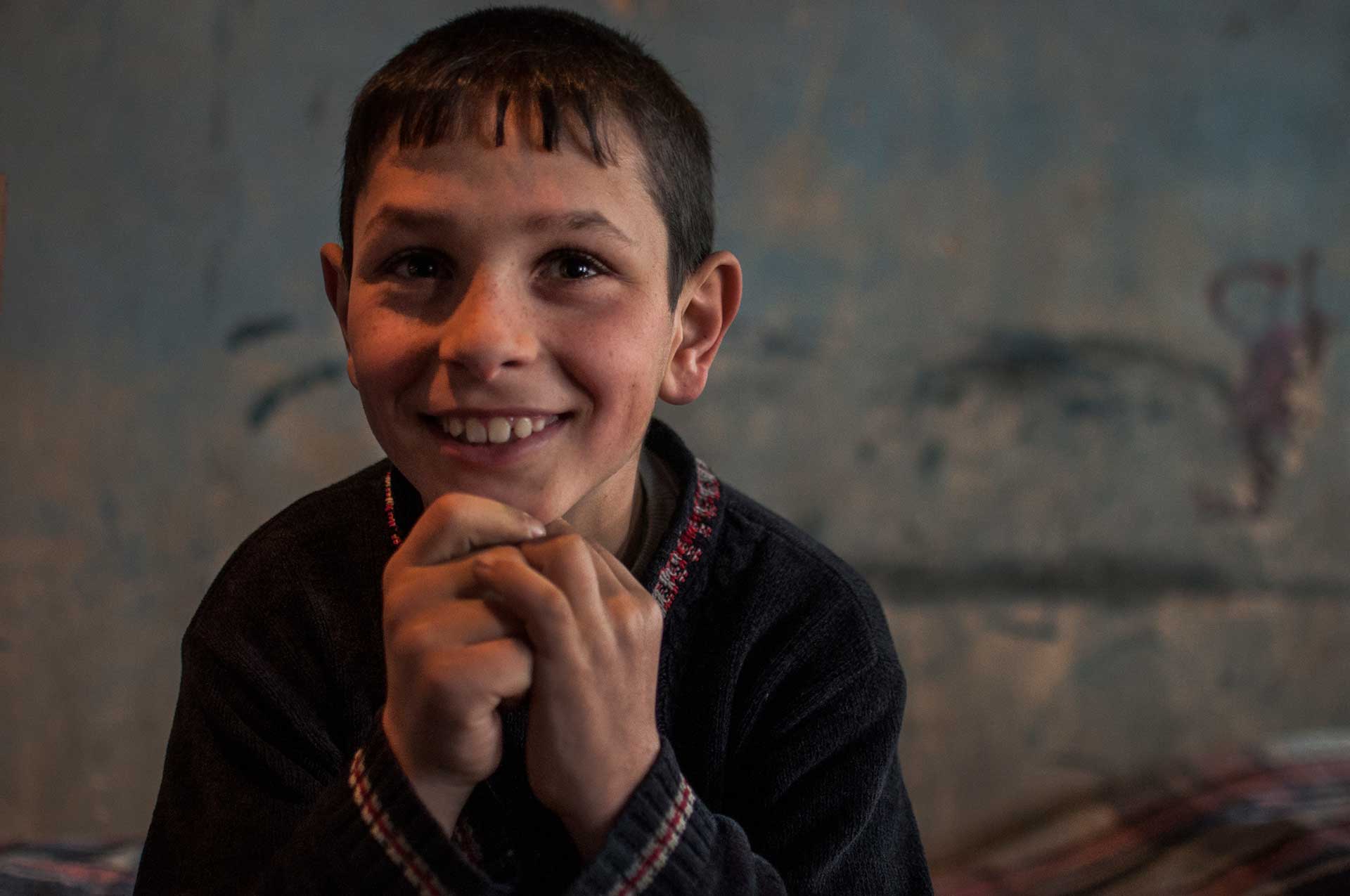
I ask Norvart to come with me out on the balcony to talk. I don’t want the kids to hear our conversation. She refuses and coarsely adds, “I have nothing to hide. They know everything.”
Norvart’s had a difficult life, leaving her with a cold exterior. Inside, though, she’s fragile and sensitive. I wait for her to express that sensitivity. “What? You think I’m a strong person because I endure all this?” she says. Our conversation then settles down and Norvart’s initial mistrust gradually fades.
“We snatch days from God and live here”
Norvart Ghazaryan, 32, was born in Lernagog and married in the village. Martiros, her husband, left for Russia eight months ago to work. Before leaving he had some painful dental surgery that caused him terrible headaches. Norvart says her husband can’t even make enough in Russia to pay for the fare back to Armenia. She doesn’t have any money to send him.
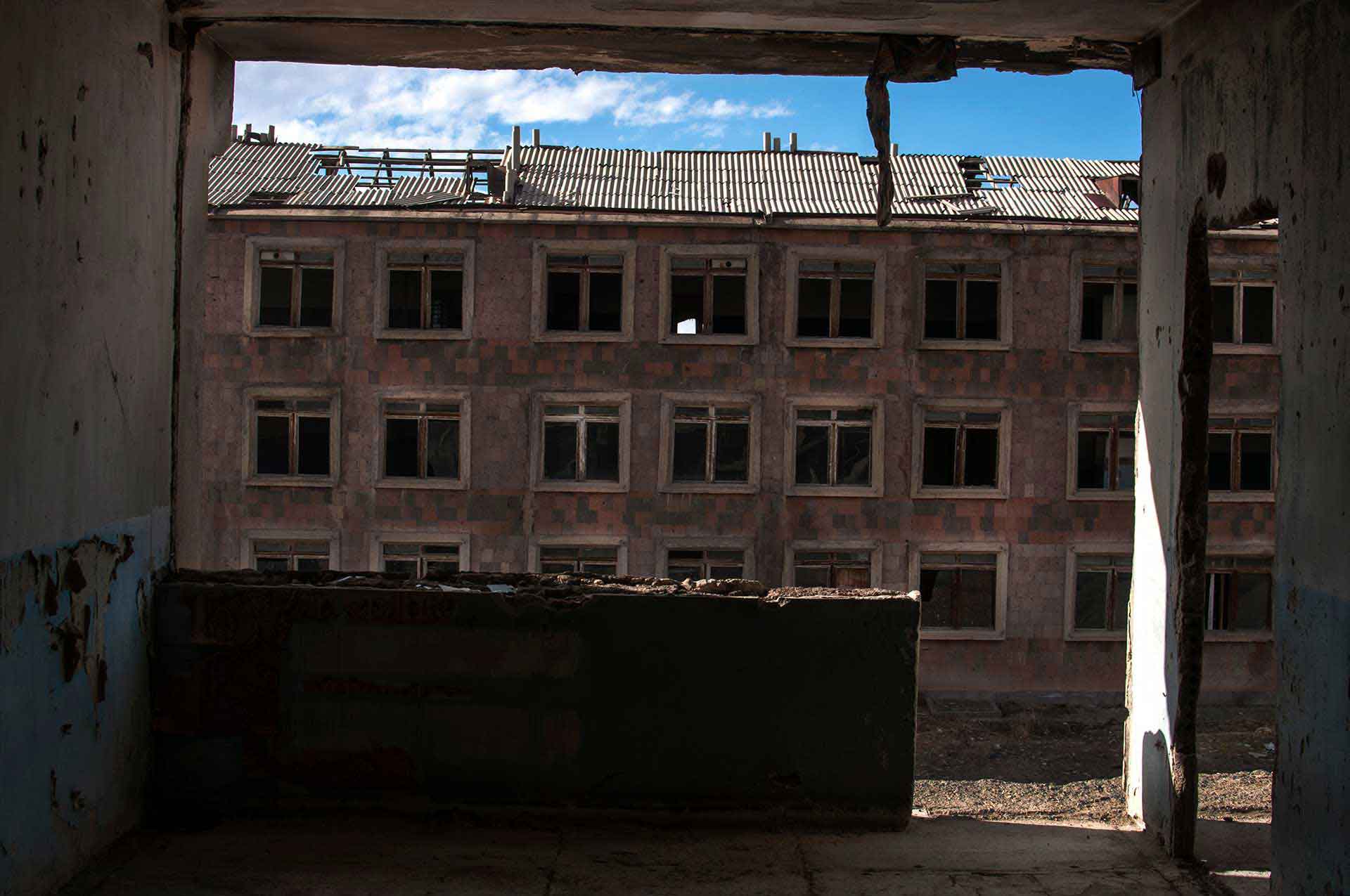
Norvart, a hairdresser by trade, doesn’t work. She describes her three sons as rambunctious boys and she’s afraid to leave them alone in the building where, as she says, “danger lurks all around”. She’d definitely work if there was someone to watch over the boys.
The family survives on a monthly 35,000 AMD ($72) child assistance stipend. Most of it goes to the local food store to pay off the debt owed.
An adjacent room, where there’s a double bed, also serves as a shower and kitchen. There are no washing facilities or toilets in the building.
The wood stove is used not only to cook meals but to heat water for bathing and laundry.
“The boys and I collect stuff to burn. We get by until this blasted winter ends. We burn everything; brushwood, clothes, even shoes. We burn everything except people,” Norvart says.
The boys are a big help, she says. They fetch water from the spout in the yard for laundry and bathing. Like other village residents, the family purchases drinking water.
The boy’s school attendance has been spotty. Sometimes they don’t have appropriate clothes or shoes. A neighbor told us that Norvart is even thinking of sending the boys to boarding school.
Argisht boasts that he’s the best student of the three. The others take issue with the statement. Norvart smiles for the very first time.
Tigran and Erik say they want to become policemen. Argisht dreams of becoming a boxer. We all smile.
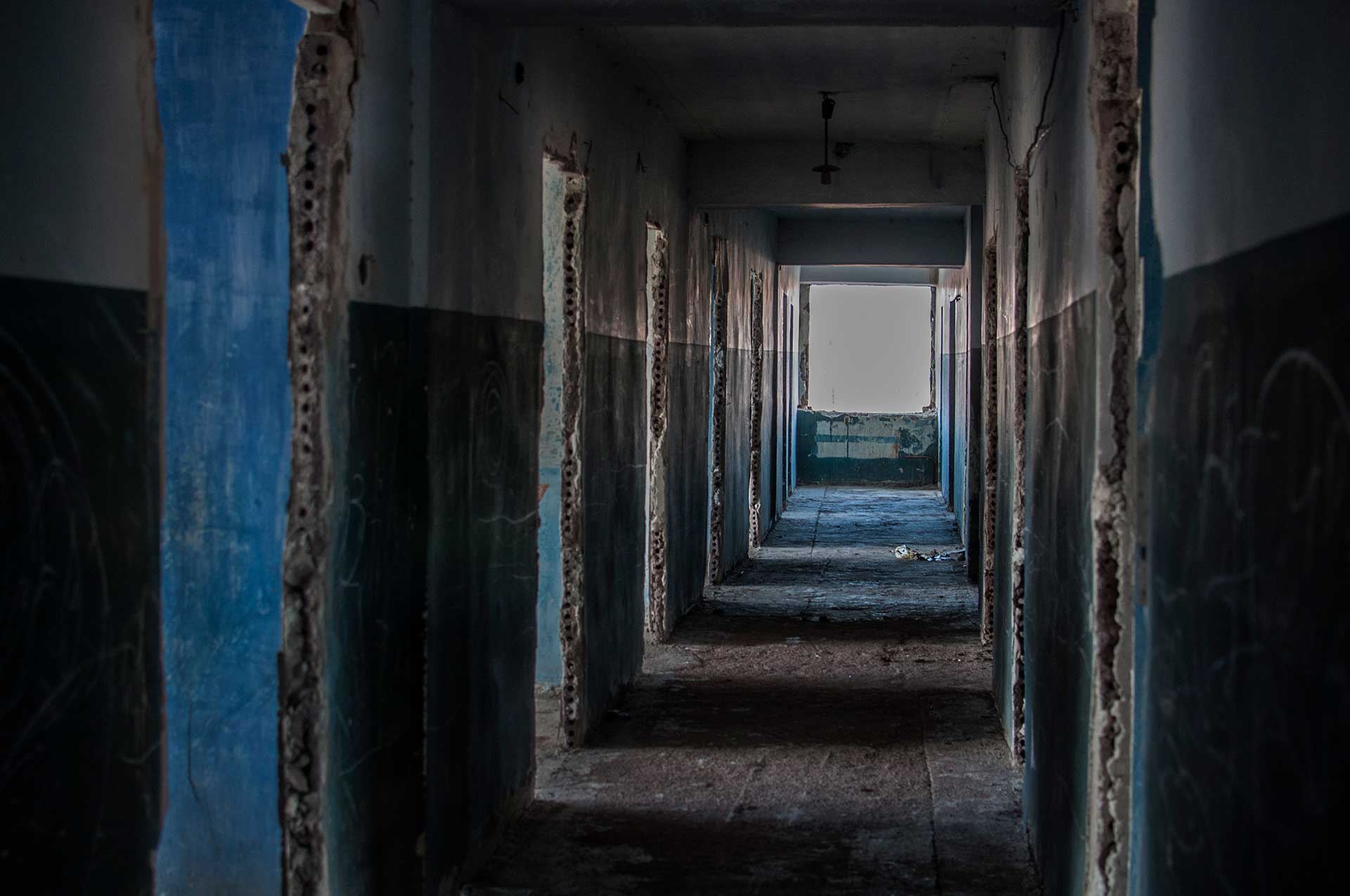
The building sways when the strong winds blow. The boys say they grown used to the movement. “This is no place to live. We are here simply in order not to sleep outside. We snatch days from God and live here.
Norvart’s relatives support the family. They bring food preserves and clothes for the boys. “If it wasn’t for that assistance, I don’t know what our situation would be,” says Norvart, looking down from the balcony. “You see how we live. What more can I say?” the mother asks. I have no answer. “I’ve given up all hope,” Norvart adds.
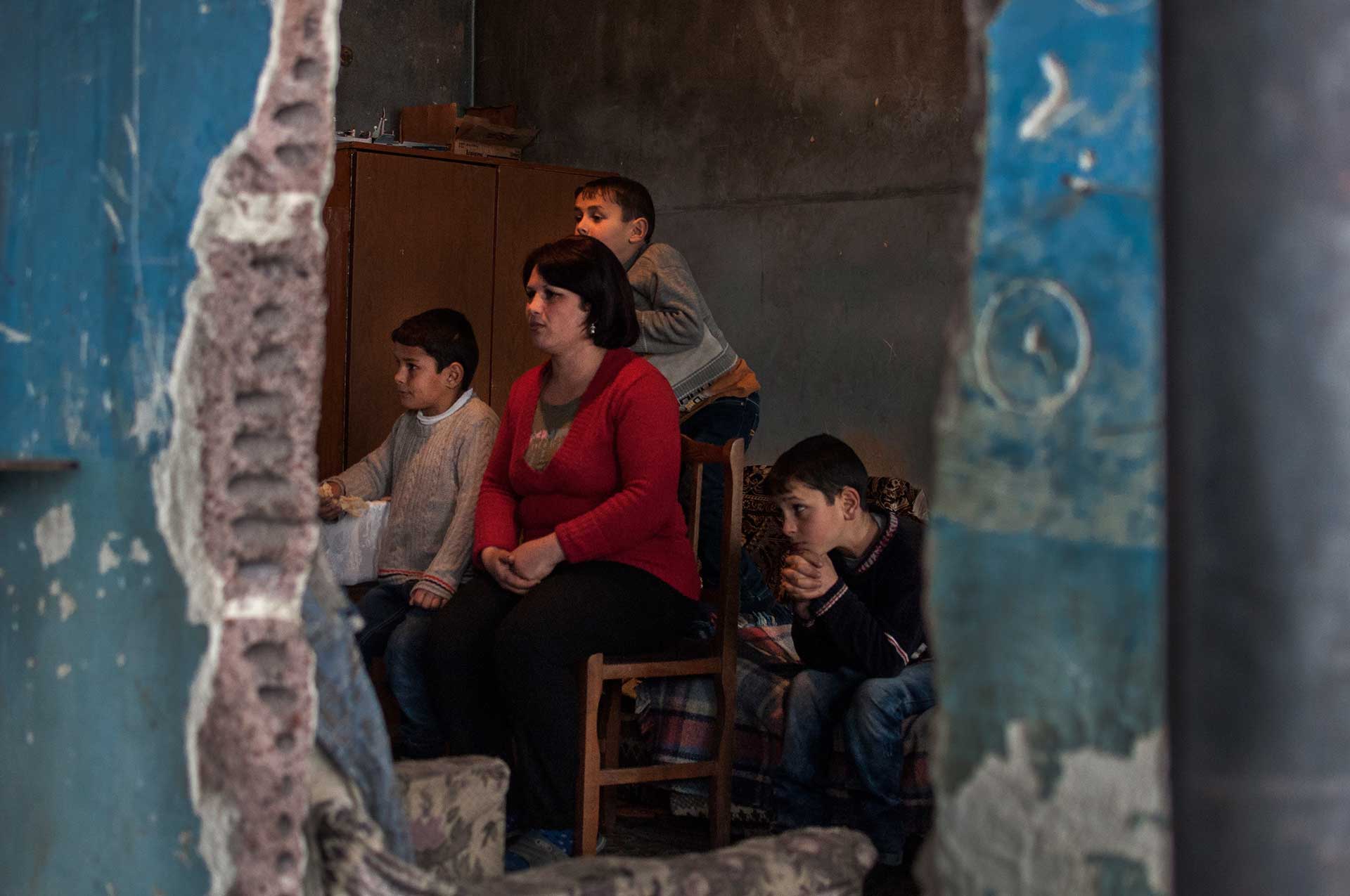
It’s only now that I understand Norvart’s coarse manner of talking. She’s direct and to the point. There are no theatrics here, no crying about their lot in life.
The building has become a refuge for stray dogs. People and animals seem to live harmoniously. This understanding doesn’t include the foxes and wolves roaming about in the winter or the snakes and scorpions hiding out in the summer.
“I’m raising three future soldiers. Do you see what conditions we live in? If you can call this living,” says Norvart, this time looking away.
 Videos
Videos Photos
Photos
Write a comment